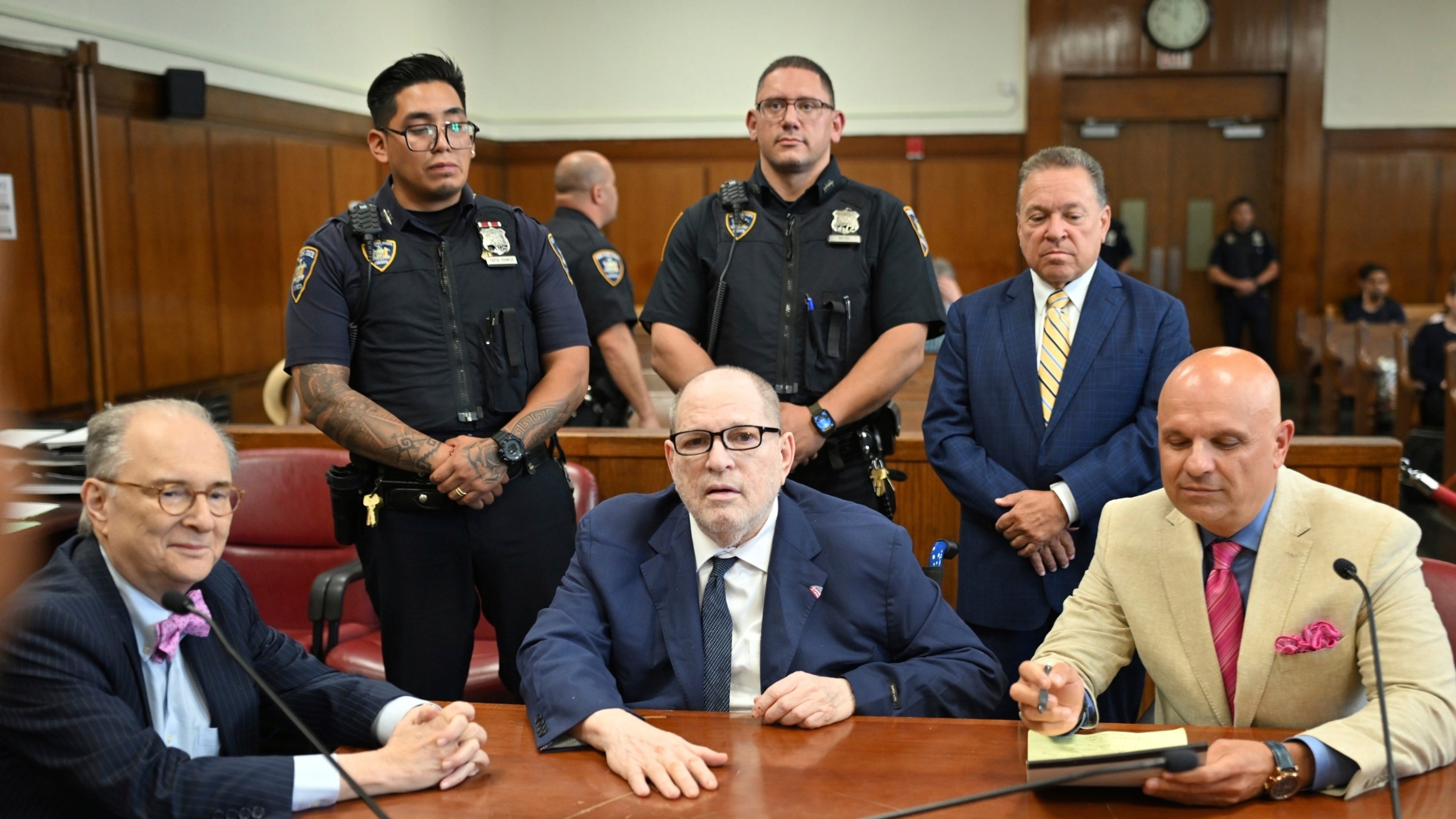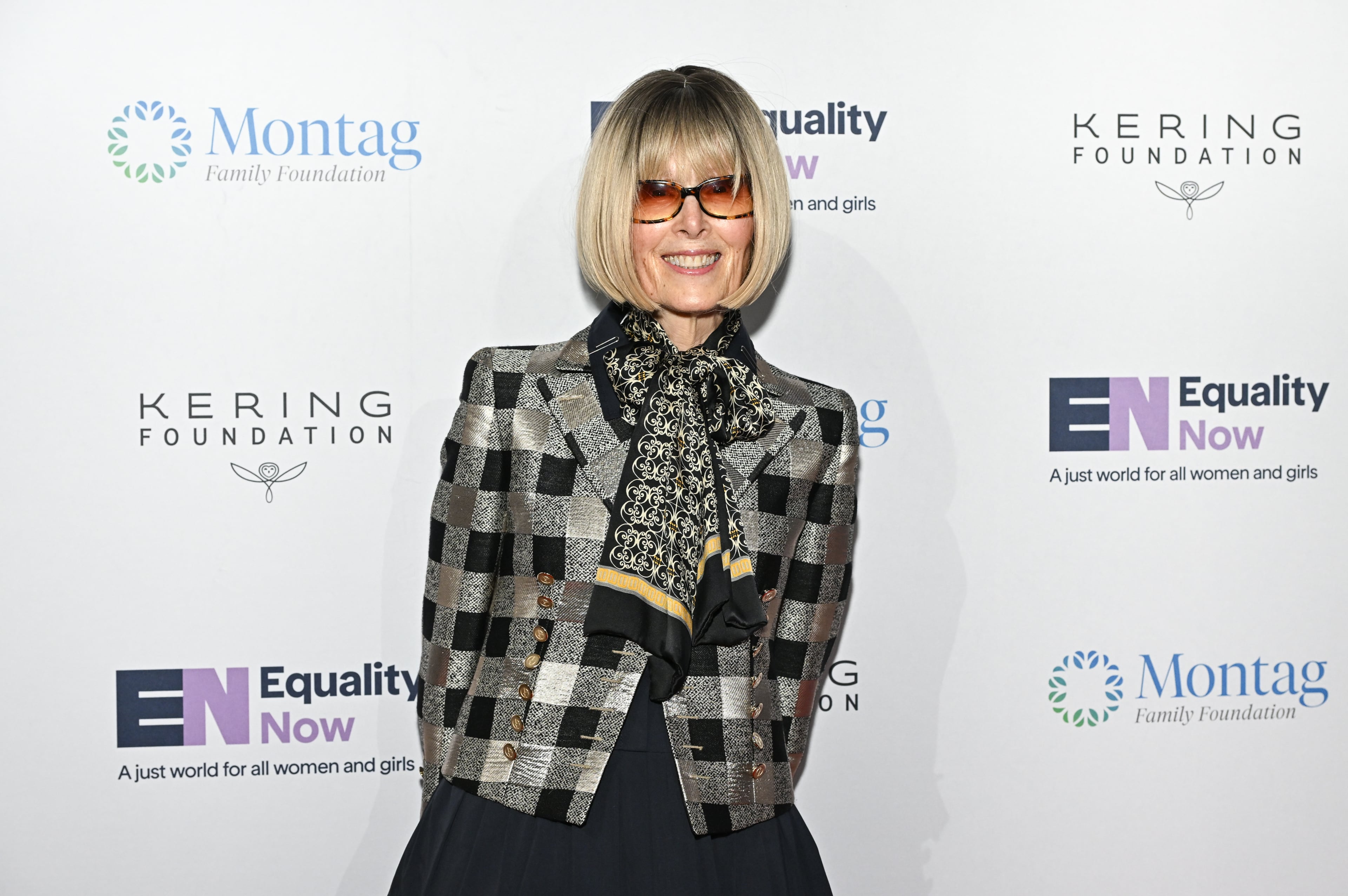Harvey Weinstein prosecutors say defense's jury misconduct claims are 'implausible'

NEW YORK (AP) — Prosecutors urged a judge on Wednesday to reject Harvey Weinstein ’s claims that his June sexual assault conviction was marred by threats and bullying among jurors.
The disgraced movie mogul’s lawyers submitted affidavits last month from two members of the jury who said they regretted voting to convict and only did so because other jurors bullied them during five contentious days of deliberations.
The Manhattan district attorney’s office said the claims were “inconsistent and implausible” and gave no legal basis to overturn his conviction.
One juror who alleged seeing “threats” and “intimidation” had earlier told the judge he only saw “playground stuff," prosecutors said. Immediately after the trial, the juror told reporters, “it’s not like a fight was going to break out. No, obviously not.”
Weinstein’s bid to overturn his first-degree criminal sex act conviction “utterly fails, on both the law and the facts, to meet the standard necessary to set aside the guilty verdict,” prosecutors Matthew Colangelo, Nicole Blumberg, Shannon Lucey and Becky Mangold wrote.
They cited a centuries-old rule that the U.S. Supreme Court said protects verdict finality and prevents jurors from being "harassed or annoyed by litigants seeking to challenge the verdict.”
Weinstein spokesperson Juda Engelmayer said Wednesday that the prosecution filing “avoids the core issue raised in Mr. Weinstein’s motion — that several jurors reported being pressured, intimidated, and even verbally attacked into changing their votes. This isn’t about second-guessing deliberations; it’s about the integrity of the process itself.”
Judge Curtis Farber said he'll rule on Dec. 22.
Prosecutors said they declined to interview any jurors before responding to the defense’s claims because doing so would “cause the very harms” the rule was meant to avoid.
Weinstein’s defense team, led by attorney Arthur Aidala, argued in court papers last month that the verdict was marred by “threats, intimidation, and extraneous bias,” and the judge mishandled juror complaints.
The two jurors said they felt overwhelmed and intimidated by others on the panel pressing to convict Weinstein of forcing oral sex on TV and film production assistant and producer Miriam Haley in 2006.
One juror said she was screamed at in the jury room and told, “we have to get rid of you.” The second juror said dissenters were grilled by other jurors and he would have acquitted Weinstein if voting was secret.
“I regret the verdict,” he said, adding that without the intimidation he believes there would have been a hung jury on the Haley charge.
Weinstein, 73, was acquitted on a second criminal sex act charge involving a different woman, Polish psychotherapist and former model Kaja Sokola. The judge declared a mistrial on the final charge, alleging Weinstein raped former actor Jessica Mann, after the jury foreperson declined to deliberate further.
It was Weinstein's second trial on some of the charges. His 2020 conviction, a watershed moment for the # MeToo movement, was overturned last year. In addition to seeking to overturn his June conviction, Weinstein’s lawyers are also fighting to avoid yet another retrial on the undecided count.
Weinstein denies all of the charges. He faces up to 25 years in prison on the first-degree criminal sex act conviction. The unresolved third-degree rape charge is punishable by up to four years — less than he already has served.
The Oscar-winning producer has been behind bars since his initial conviction in 2020, and was sentenced to prison in a separate California case, which he is appealing.
Some of the juror's new claims echoed conflicts that spilled into public view during deliberations.
One juror sought to be excused, saying another was being treated unfairly. The foreperson later reported pressure inside the jury room and said a juror threatened to “see me outside.”
Faber warned jurors that “tension and conflict” is normal, and cautioned them not to discuss the content or tenor of their deliberations, transcripts show.
When jurors came forward with concerns, Farber was strict about respecting the sanctity of deliberations and cautioned them not to discuss the content or tenor of jury room discussions, transcripts show. The two jurors said in affidavits that they did not believe he took their concerns seriously.
One juror said she paused before affirming the verdict “to try and indicate my discomfort in the verdict,” and later told the judge “the deliberations were unprofessional.”

